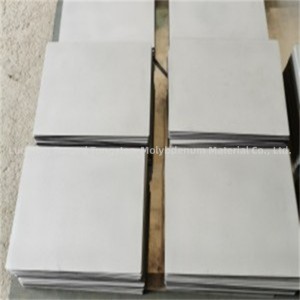Best Selling Nickel Alloy Hastelloy Pipes, plates, welding materials
The production of Hastelloy tube and plate involves a series of manufacturing processes to ensure that the material meets the specifications and standards required for its intended application. The following are the general steps for the production of nickel alloy Hastelloy pipe and plate:
Raw Material Selection: The production process begins with the careful selection of high-quality raw materials based on the specific composition required for the target Hastelloy grade, including nickel, molybdenum, chromium and other alloying elements. Melting alloying: Selected raw materials are melted under precise temperature control in a vacuum induction furnace or electric arc furnace to form a homogeneous alloy with uniform chemical composition. This step is critical to achieving the desired corrosion resistance, high temperature strength, and other performance characteristics. Shaping: The molten alloy is then shaped into its initial shape for further processing. For pipe, the forming process may involve extrusion or rolling to create the desired diameter and wall thickness. Sheet is usually produced by hot or cold rolling to achieve the required thickness and flatness. Heat treatment: Hastelloy parts undergo heat treatment processes such as annealing, solution heat treatment and quenching after forming to optimize their microstructure, mechanical properties and corrosion resistance. Machining and finishing: Once the material has been formed into its final shape, additional machining, cutting and surface finishing processes can be used to meet dimensional tolerances, surface quality and specific requirements for pipes and plates. Quality Control and Testing: Throughout the production process, strict quality control measures are implemented to ensure that materials meet the required standards. This involves non-destructive testing, mechanical testing, chemical analysis and other inspections to verify the integrity and performance characteristics of the material.
It is important to note that production methods may vary depending on the specific requirements of Hastelloy pipe and plate and the manufacturing capabilities of the factory. In addition, the manufacturing processes for nickel alloy products are highly specialized and may involve proprietary techniques or variations to meet industry-specific standards and customer specifications.
Nickel alloy Hastelloy pipes and plates are widely used in various industries due to their excellent corrosion resistance, high temperature strength and excellent mechanical properties. Some common applications include:
Chemical Processing: Hastelloy pipe and plate are used in chemical processing plants to handle corrosive chemicals such as sulfuric acid, hydrochloric acid, acetic acid and chloride. These materials are critical for applications involving chemical reactors, distillation columns, heat exchangers and other equipment that is resistant to corrosion and high temperatures. Aerospace and Defense: Hastelloy alloys are used in aerospace and defense applications for their ability to withstand harsh environments, including high-temperature exhaust systems, aircraft gas turbines, missile components, and naval vessels exposed to salt water and corrosive chemicals system. Oil and Gas Industry: In the oil and gas sector, Hastelloy pipe and plate are used on offshore platforms, refineries and petrochemical facilities that require resistance to corrosion from sour gases, chloride-containing environments and high-pressure, high-temperature conditions. Essential for extended service life and reliability. Pharmaceuticals and Biotechnology: The excellent corrosion resistance of Hastelloy alloys makes them suitable for pharmaceutical and biotechnology applications, including the manufacturing of pharmaceutical ingredients, specialty chemicals and biopharmaceutical products that require sterile and corrosion-resistant processing equipment. Power generation: For power plants, including fossil fuel and nuclear facilities, Hastelloy materials are used in critical components such as heat exchangers, steam generators and boiler systems that are exposed to high temperatures, steam and corrosive chemicals, requiring materials Excellent performance in: Harsh conditions. Pollution Control: In pollution control systems, such as scrubbers, exhaust stacks, and industrial waste treatment facilities, Hastelloy pipe and sheet are used for their ability to withstand acidic and corrosive gases as well as high temperatures and corrosive environmental controls Process-related conditions.
These are just a few examples of the diverse applications of nickel alloy Hastelloy pipe and plate. Their unique combination of properties makes them essential materials in industries where corrosion resistance, high-temperature strength and reliability are critical.
Wechat:15138768150
WhatsApp: +86 15236256690
E-mail : jiajia@forgedmoly.com







